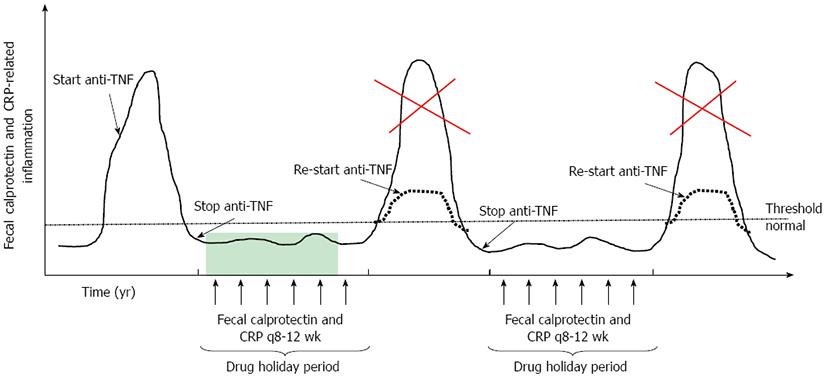Copyright
©The Author(s) 2015.
World J Gastroenterol. Apr 28, 2015; 21(16): 4773-4778
Published online Apr 28, 2015. doi: 10.3748/wjg.v21.i16.4773
Published online Apr 28, 2015. doi: 10.3748/wjg.v21.i16.4773
Figure 1 New concept of intermittent anti-tumor necrosis factor α therapy in inflammatory bowel disease.
Stopping anti-TNFα agents after achieving a deep remission may result in prolonged clinical remission. Close monitoring of these patients with fecal calprotectin and CRP measurements (arrows) will allow early re-initiation of anti-TNFα therapy, when inflammation is starting to rise, which may result to a sustained clinical benefit (dotted line) preventing a disease flare (red cross). These patients may be considered as treated periodically and not episodically. TNF: Tumor necrosis factor; CRP: C-reactive protein.
- Citation: Papamichael K, Vermeire S. Withdrawal of anti-tumour necrosis factor α therapy in inflammatory bowel disease. World J Gastroenterol 2015; 21(16): 4773-4778
- URL: https://www.wjgnet.com/1007-9327/full/v21/i16/4773.htm
- DOI: https://dx.doi.org/10.3748/wjg.v21.i16.4773









